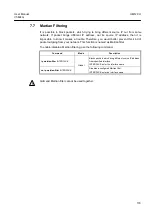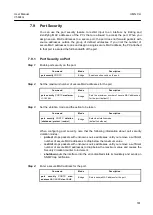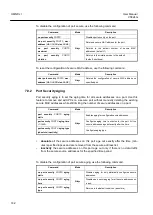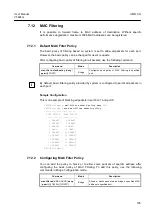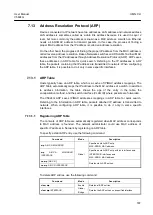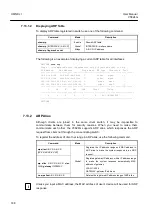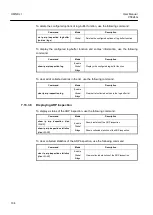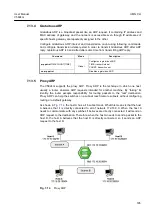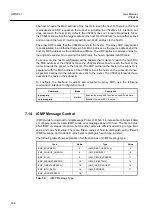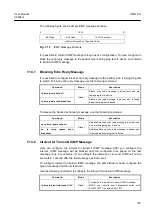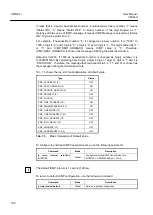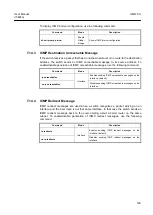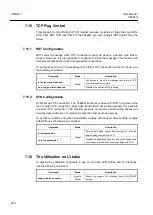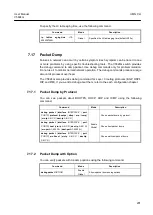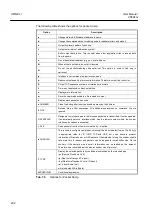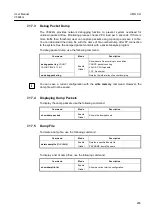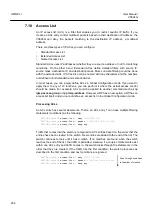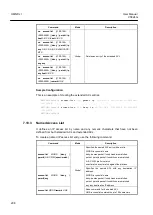
User Manual
UMN:CLI
V5824G
193
7.13.3.4
ARP Inspection on Trust Port
The ARP inspection defines 2 trust states, trusted and untrusted. Incoming packets via
trusted ports bypass the ARP inspection process, while those via untrusted ports go
through the ARP inspection process. Normally, the ports connected to subscribers are
configured as untrusted, while the ports connected to an upper network are configured as
trusted.
To set a trust state on a port for the ARP inspection, use the following command.
Command
Mode
Description
ip arp inspection trust port
PORTS
Global
Sets a trust state on a port as trusted
PORTS: port number
no ip arp inspection trust port
PORTS
Sets a trust state on a port as untrusted
PORTS: port number
To display a configured trust port of the ARP inspection, use the following command.
Command
Mode
Description
show ip arp inspection trust
[
port
PORTS
]
Enable
Global
Bridge
Shows a configured trust port of the ARP inspection.
7.13.3.5
ARP Inspection Log-buffer
Log-buffer function shows the list of subscribers who have been used invalid fixed IP
addresses. This function saves the information of users who are discarded by ARP
inspection and generates periodic syslog messages.
Log-buffer function is automatically enabled with ARP inspection. If V5824G receives
invalid or denied ARP packets by ARP inspection, it creates the table of entries that
include the information of port number, VLAN ID, source IP address, source MAC
address and time. In addition, you can specify the maximum number of entries.
After one of entries is displayed as a syslog message, it is removed in the order in which
the entries appear in the list.
To configure the options of log-buffer function, use the following command.
Command
Mode
Description
ip arp inspection log-buffer
entries
<0-1024>
Global
Specifies the number of entries in log-buffer.
0-1024: the max. number of entries (default: 32)
ip arp inspection log-buffer
logs
<0-1024>
interval
<0-
86400>
Sets the interval for displaying syslog messages of
entries.
0-1024: the number of syslog messages per specified
interval (default: 5)
0-86400: interval value in second (default: 1 sec)

